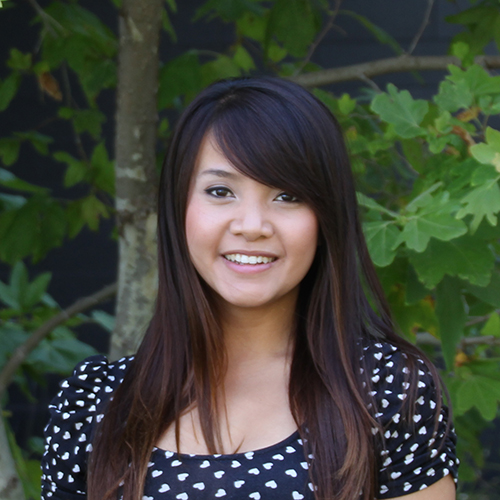
Ask Lisa Nguyen what gets her blood racing, and her answer will be hematopoietic stem cells, or HSCs. She’ll be presenting about HSCs, which form the blood and immune systems, at the International Society for Stem Cell Research (ISSCR) Annual Meeting in Boston in June 2017. We chatted with Nguyen about her upcoming presentation and her life as a PhD student in the USC Stem Cell laboratory of Rong Lu.
What is the topic of your presentation at the ISSCR’s 2017 annual meeting?
In most organ systems, regeneration is a coordinated effort that involves many stem cells, but little is known about how individual stem cells compensate for the functional deficiencies of other stem cells. In my presentation, titled “Clonal compensation between hematopoietic stem cells upon differentiation deficiency,” I will discuss how we used our single-cell tracking technology to understand how individual mouse HSCs compensate for the deficiencies of other HSCs. We identified molecular regulators and signals associated with this HSC coordination. Our analysis revealed a distinct subset of HSCs that respond quickly and persistently to induced blood cell deficiencies. We also showed the remarkable heterogeneity of HSCs in response to changes in the blood system.
What inspired you to become a stem cell researcher?
I have always been interested in science. My first research experience was working in an evolutionary physiology laboratory that examined the cardiac system of alligators. The experience gave me a deeper appreciation for academic research, and inspired me to pursue a master of science degree with an emphasis in cell biology and physiology.
My interest in stem cell biology was first inspired by a course during my undergraduate studies at the University of California, Irvine. I was amazed to learn about the remarkable potential of stem cells to develop into many different cell types in the body and to divide essentially without limit. Given their unique regenerative abilities, stem cells are a powerful tool for treating many diseases. For this reason, I decided that I would pursue stem cell research when I was accepted into the PhD Programs in Biomedical and Biological Sciences at USC.
How do you spend your free time?
I am an addicted runner who runs almost every morning. I love hiking with my dog at places such as Sturtevant Falls and Eaton Canyon. I cook at least twice a week, and I love attempting new recipes. I find all these activities to be meditative, which is important because the life of a researcher can be hectic.
What do you like most about living and working where you do?
I enjoy working at the USC’s stem cell research center because the people are great, and the environment is conducive to learning. Multidisciplinary collaborations are highly encouraged among bioengineers, medical practitioners, cancer biologists and stem cell researchers at both the main and medical school campuses. I am constantly learning from faculty here and invited speakers from nearby universities, such as Caltech, UCLA, and UCSB—just to name a few. I have all the tools necessary to conduct cutting-edge research at this institute.
Los Angeles in general is also a great place to live. There are always new restaurants to try and events to attend. It is an exciting place to be for my scientific career and for this stage in my life.
What is the goal of your future career as a stem cell scientist?
I would like to continue my research in a biotechnology setting. I want to apply the scientific principles I have learned to creating new regenerative medicines for treating diseases.
